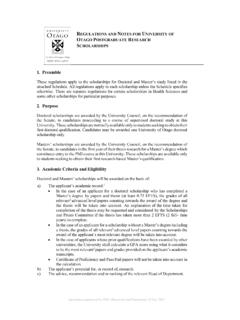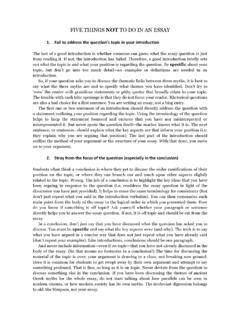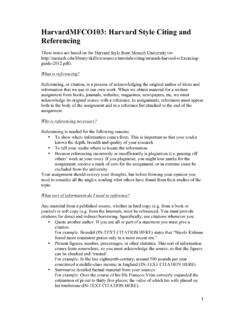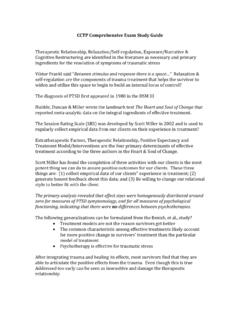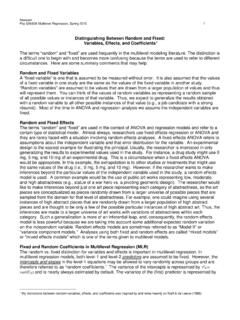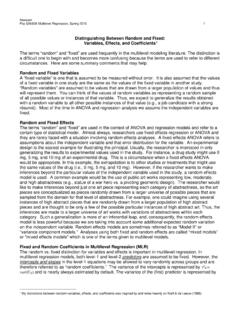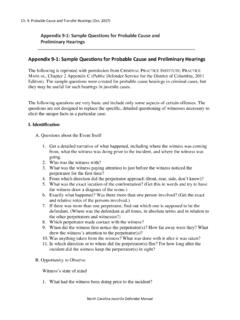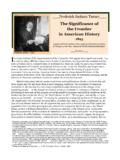Transcription of Comparison between Western and Middle Eastern Cultures ...
1 Volume 13 2015 Otago Management Graduate Review This assignment was for MANT454 Global Management Supervised by Prof Andr Everett 33-43 Comparison between Western and Middle Eastern Cultures : Research on Why American Expatriates Struggle in the Middle East Ebba Ourfali Introduction Organisations in general are aiming at reaching as much markets as possible, which means interacting with different Cultures and environments. Interacting with individuals with different backgrounds could result in miscommunication. The reason is that people from different Cultures perceiving almost everything differently. Consequently, organisations are increasingly interested in people that have experienced and adjusted to different Cultures as they are flexible in cultural adjustment. This flexibility helps an organisation in saving money by sending an employee who is capable of carrying over the assignment they were sent on successfully without damaging business relationships overseas.
2 Therefore, this essay will discuss expatriates and their roles, what are cross-cultural issues, the difference between high and low context Cultures , and a Comparison of American culture and Saudi Arabian culture. This Comparison could help in understanding why American expatriates, who are in heavy demand in Saudi Arabia, struggle when trying to adjust to the Saudi Arabian culture. Expatriates in a Brief Overview Expatriates are increasingly becoming important and are utilized by corporations all over the world due to global assignment that hold strategic importance to an organisation, such as new market development. For example, a survey of 103 organisations has shown that these organisations have more than 50 high-level managers, and between 200 and 2000 managers on global assignments (Caligiuri, 2000).
3 Caligiuri (2000) claims that it is vital for an organisations to attract, select, develop, and retain employees who can live and work effectively overseas. Nevertheless, Ali and Azim (1996) argue that expatriates have different perceptions compared to individuals who lived in only one society because of their broader cultural backgrounds and experiences. However, scholars argue that due to the lack of competent indigenous workers organisations train employees to be flexible and internationally mobile (Bhuian, Al-Shammari, & Jefri, 2001). Consequently, expatriates started getting hired straight after the noticeable development of international business (Bhuian, Al-Shammari, & Jefri, 2001). Bhuian, Al-Shammari, and Jefri (2001) claim that there are two types of expatriates, organizational expatriates (OE) are sent by organisations overseas to complete specific assignments.
4 The second type of expatriates according to Bhuian, Al-Shammari, and Jefri (2001) is self-initiated overseas expatriates (SIE), who are different to organisational expatriates, are hired individually by overseas companies on contractual basis. The latter is found heavily in the developing regions such as Middle , Eastern European, and Otago Management Graduate Review Volume 13 2015 34 Comparison between Western and Middle Eastern Cultures South-East Asia because of the exodus of ambitious workers (Bhuian, Al-Shammari, & Jefri, 2001). In addition, Bhuian, Al-Shammari, and Jefri (2001) claim that the intense scarcity of capable workforce in some parts of the world, specifically the Gulf Cooperation Council, has increased the demand for expatriates in general. Due to the rapid and sustainable economic expansion of countries in that region a lack of human resources was increasing, which forced these countries to hire expatriates from all around the world (Bhuian, Al-Shammari, & Jefri, 2001).
5 In specific, scholars claim that in the 1985 expatriates made up around 61% of oil-rich countries workforce, and 40% of their population. To clarify, Saudi Arabia is one of the strongest economies, if not the biggest, but the severe lack of skilled human resources forced the country to hire 4 million expatriates, who are mostly SIEs. Therefore, expatriates were highly important for previously mentioned countries long and short term strategic development plans, and that was shown in their heavy dependency on expatriates. However, studies have shown previously that expatriates have a different work orientation compared to individuals from the host country, which is due to their cultural experiences (Ali, Taqi, & Krishnan, Individualism, Collectivism, and Decision Styles of Managers in Kuwait, 2010). Cross Cultural Issues Expatriates that travel overseas to start working in a completely new environment and culture, which needs cross-cultural adjustment.
6 Individuals from different parts of the world are raised in different ways, environments, languages, and from that they start developing their personality. For example, a person from Italy would be offended if someone else was asked formally to check their work (Hofstede, 1986). Consequently expatriates not only face difficulties adjusting to the host country s environment and culture, but difficulties are experiences when adjusting to the new organisational culture (Ali & Azim, 1996). Therefore, to fit within a new society after an individual starts living in a completely new culture that has different values and norms, they need to cross-culturally adjust. Cross-cultural adjustment is defined as the extent to which an individual are psychologically comfortable living outside their home country (Caligiuri, 2000). Values are defined as broad tendencies to prefer certain states of affairs over others (Hofstede, 1986, p.)
7 5). Moreover, Hofstede (1986) claims that values are simply what leads us to feel that a certain thing is good or evil. In other words, Caligiuri (2000) claims that cross-cultural adjustment simply is the individuals affective psychological response to the new environment . Nevertheless, in cross-cultural issues there are problems that are subjective and others that are objective and both are influenced by individual s Cultures . Subjective problems are focused around individual s qualities and tendencies, such as unwillingness to take responsibility. (Ali & Azim, 1996). Objective problems on the other hand is referring to problems that originate in a civilization, society, or organisation, such as tribal influence (Ali & Azim, 1996). On one hand, studies have shown that cross-culturally adjusted expatriates try to integrate themselves when approaching a culture, they try to absorb the hosting culture, and they adjust and integrate behaviours, norms, and roles to their basic culture provided by their home country (Caligiuri, 2000).
8 Hofstede (1986) claims that since human beings societies have been in Volume 13 2015 Otago Management Graduate Review Ourfali 35 contact with each other and cross cultural learning been happening. On the other hand, scholars claim that cross culturally unadjusted expatriates tend to view the host country s culture inferior to their home culture (Caligiuri, 2000). Furthermore, Caligiuri (2000) claims that they tightly hold on to their Cultures whenever they can and they are unwelcoming to the norms, behaviours, and roles of the host country s culture . For example, culturally-unadjusted expatriates tend to surround themselves with groups of expatriates from their home country s culture (Caligiuri, 2000). An explanation could be that individual s surrounding environment reinforces them in their traditional way, which makes learning hard (Hofstede, Cultural Differences In Teaching and Learning, 1986).
9 High versus Low Context Cultures Different Cultures around the world have different norms, behaviours, and actions, which in essence are different ways of communicating with one another according to their rules and principles. However, different actions and behaviours carry different meaning depending on the context and the culture. According to Hall and Hall (1987) context is the inseparable pieces of information that is surrounding an event and helps in giving the event some meaning. Different Cultures communicate with different context, and that s why Cultures can be compared on a scale from low to high context (Hall & Hall, 1987). Hall and Hall (1987) defined high context (HC) communication is where most of the information exist in the person and there is very little explicit information in the transmitted message.
10 While low context (LC) communication has most of the information in the explicit and transmitted part of the message (Hall & Hall, 1987). For example, two lawyers in a courtroom will keep their communication low context and most of the information will be explicit (LC), but for two twins they would communicate more implicitly (HC) (Hall & Hall, 1987). Cultures that favour close personal relationships and have extensive information networks among colleagues, family, and friends are high context, such as Arabs and Japanese (Hall & Hall, 1987). Consequently, most daily activities does not require background information as these type of Cultures stay up to date about everything to do with people that they consider important (Hall & Hall, 1987). Hall and Hall (1987) claim that Cultures who separate themselves and stay discrete about every aspect of their lives are low context Cultures , such as Americans and Germans.




